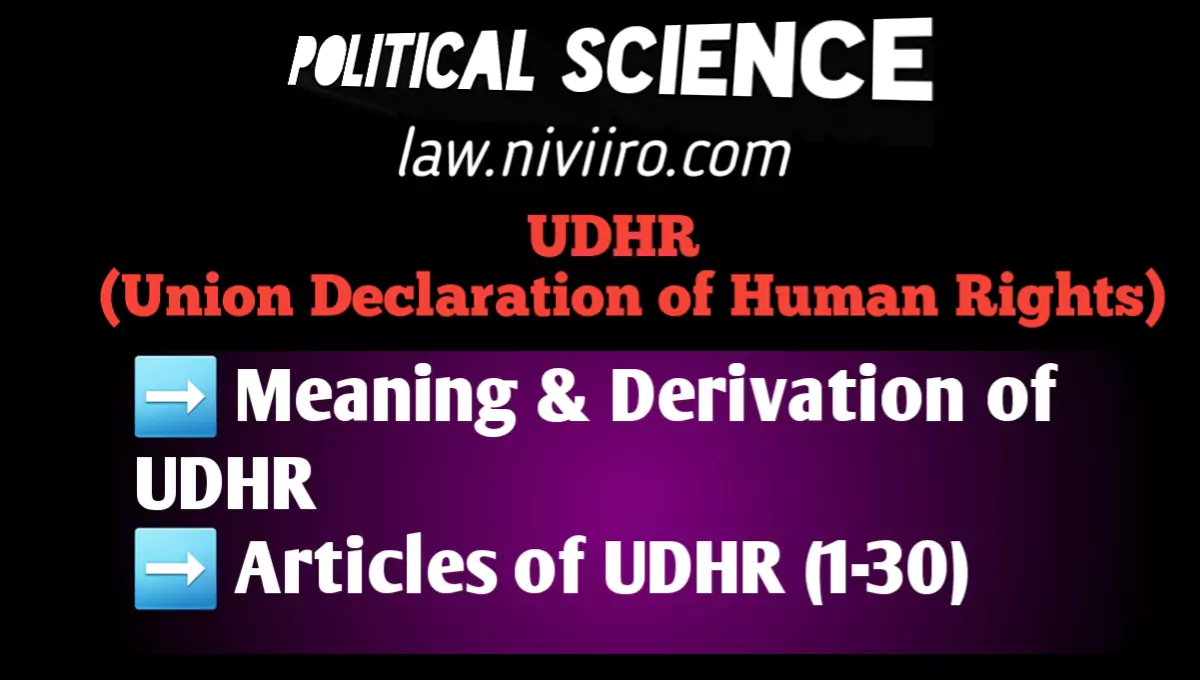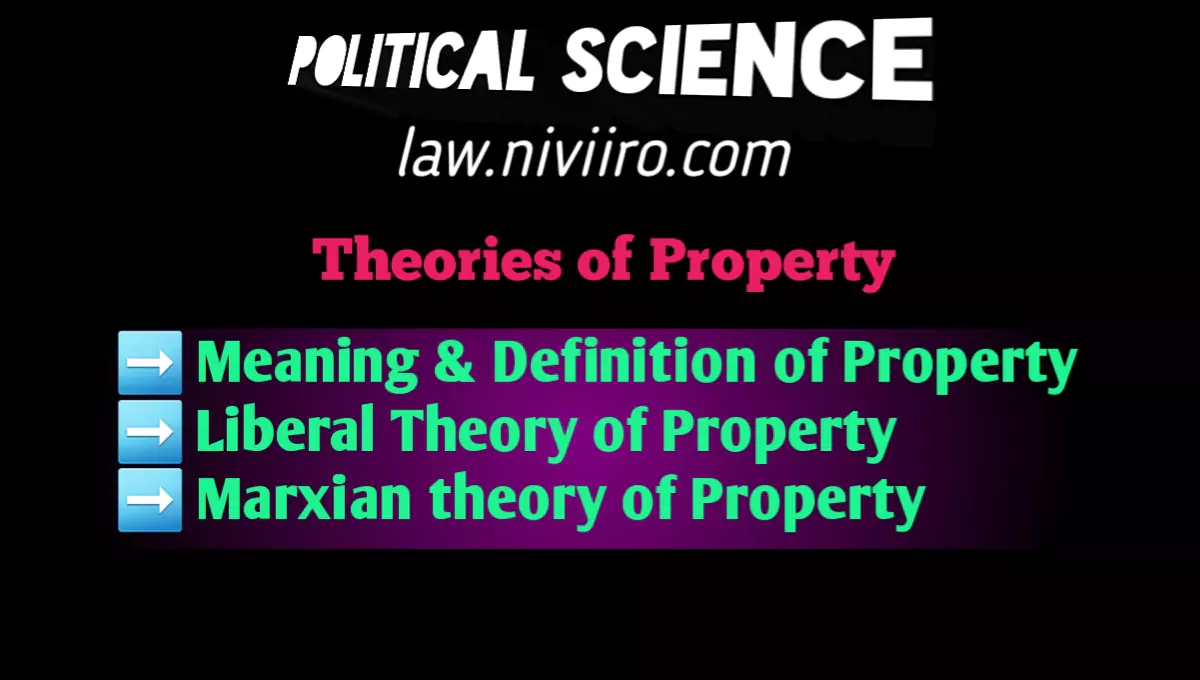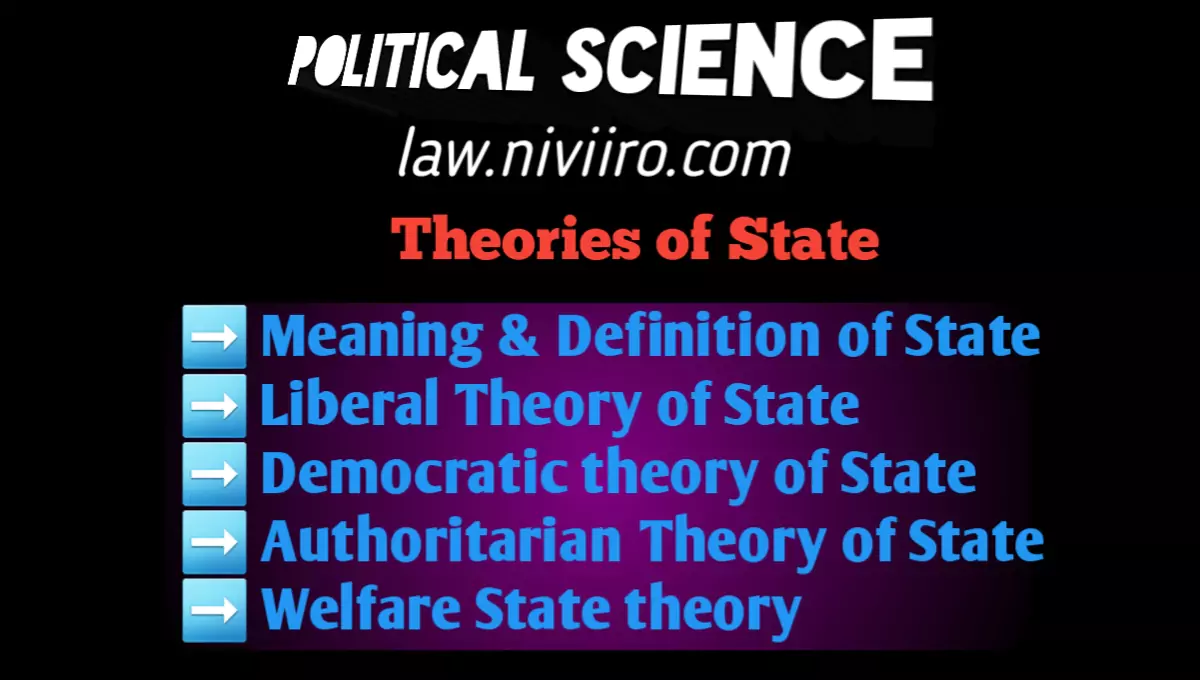Austin’s Theory of Sovereignty – In the nineteenth century, John Austin (1790-1859) was a prominent English lawyer. He proposed his theory about a century ago. In his famous book “Lectures on Jurisprudence,” he explains his idea in detail. This book came out in 1832. Though influenced by Hobbes and Bentham’s ideas, his theory of sovereignty is extremely separate. In his classic book “Province of Jurisprudence Determined,” he explained the legal or monistic theory of sovereignty very clearly and completely (1832).
In his other well-known book, “Lectures on Jurisprudence,” he distinguished between law and morality. His idea of sovereignty is stated as follows: “If a determinate human superior gains habitual obedience from the majority of a particular society, that determinate human superior is the sovereign, and that society (including the superior) is a political and independent society. Every positive law or every law simple or strictly so called, is set directly or circuitously by a sovereign person or body to a member or members of the independent political society wherein that person or body is sovereign or supreme”
We discovered the following highlights of John Austin’s doctrine of sovereignty after extensively studying and critically examining it :
- Sovereignty is always possessed by a single individual or group of people. A single person or group of people cannot be termed sovereign. It also does not reside in the General Will, the electorate, or God.
- In both circumstances, internal and exterior, sovereignty is total, indivisible, and limitless.
- A society that lacks sovereignty cannot be referred to as a state.
- The sole law-maker is the determined human superior. His directives are laws, and the state cannot exist without him.
- The determined human has no equivalent position rival in the state, and he does not heed anyone’s direction.
- Sovereignty is the power of the determined human superior.
- The determined human superior is not subject to any power. As a matter of habit, the majority of the people obey the sovereign’s command.
Criticism of Austin’s Theory of Sovereignty
This theory is against popular sovereignty
This notion is fatal to Rousseau’s concept of the General Will, which is the foundation of democracy. It contradicts the fundamental principles of democracy. Austin’s sovereign is supreme, and everyone else is subject to him. Austin dismissed the concept of popular sovereignty, which is at the heart of democracy. The people have absolute power in a democracy. Austin’s environment, on the other hand, is hierarchical. As a result, Austin’s idea of sovereignty does not fit into a democratic framework.
It ignores the power of public opinion and political sovereignty
Austin’s definition of sovereignty disregards popular opinion and political sovereignty. Austin’s steadfast human sovereign is superior to all others. He exercises authority and asserts dominion. Austin’s argument ignores the electorate’s huge impact, public opinion, and political sovereignty. Sir Henry Maine argues that it is a historical reality that sovereignty has frequently been held indefinitely by a number of people.
Law is not the command of the sovereign
Austin believes that the only law-maker is the determined human superior, and that his orders constitute laws. However, Sir Henry Maine, along with other historical jurists, harshly criticised and denounced Austin’s notion of sovereignty. Sir Henry Maine holds that sovereignty does not reside in a single human superior. According to him “vast masses of influences, shortness moral, that perpetually shapes, limits or forbids the actual direction of the forces by its sovereign”.
Maine uses Ranjit Singh as an example of an absolute despot with the qualities of Austin’s determinate human superior. “Ranjit Singh could have commanded anything, the smallest disobedience to his commands would have been followed by death or multilation,” Maine says, but Ranjit Singh never “issued a command which Austin could call law…. The rules which regulated the life of his subjects were derived from their immemorial usage.”
Sovereign is not indivisible according to Pluralists
Sovereignty, according to Pluralists, is not indivisible. It can be divided. “It is impossible to make the legal theory of sovereignty valid for political philosophy,” Laski believes. It would be a lasting advantage to Political Science if the whole concept of sovereignty were surrendered”. Lindsay remarks, If we look at the facts it is plain enough that the theory of the sovereign nations has broken down”. Barker also believes that no other principle of political science is as ineffective as the doctrine of sovereignty.
The Pluralists oppose the state’s claims to dominance on the grounds that society is made up of multiple associations, of which the state is only one. As a result, the state cannot be endowed with community sovereign power. Sovereignty is divisible and must be distributed between the state and numerous other individual associations.
Sovereignty does not reside with a determinate person in the federation
Sovereignty does not rest in a single person in a federal state. In a federal state, it is impossible to find a sovereign. In a federal state, it is extremely difficult to locate the sovereign. For example, in the federal state of the United States of America, sovereignty is not vested in the president, his office, or Congress. It is part of the constitution. The scenario in our country is similar.
Force is not the only sanction behind laws
Force is not the only reason that laws exist. The public’s will is also a sanction behind the law. As a result, Austin’s understanding of sovereignty is incorrect. In modern times, laws are framed by representatives of the people rather than by the sovereign’s will.
This theory makes the sovereign completely absolute
This theory makes the sovereign totally absolute, but in actuality, being completely absolute is impossible. There were several absolute monarchs throughout the ancient and middle periods. However, monarchs could not maintain absolutely absolute control over their actions and behaviour. They were bound by moral canons, codes of conduct, and religious scruples. They faced a revolution if they attempted to breach established moral, ethical, and religious canons.
This Theory is not even applicable to Europe
According to Austin, the King-in-Parliament is the sovereign in England. However, this assumption is not legally valid because neither the King nor the Parliament may become entirely absolute. They must always pay close heed to the public’s wishes. The people, in reality, is the ultimate source of power. The Parliament is empowered by the public. Because of this, elections for the House of Commons are held every five years. In the absence of the House of Commons, the House of Lords is completely impotent.
Conclusion
After thoroughly studying and critically analysing Austin’s theory of legal sovereignty, we conclude that it is woefully inadequate in the larger context of political philosophy. It is undemocratic and deceptive. It disregards sociopolitical dynamics and does not seek to improve people’s well-being. It narrows down “the meaning of important phrases to a content which, it maintained, would be destructive to the existence of society”. Despite this, it must be acknowledged that Austin’s idea of sovereignty is obvious, factual, and logical.
Legally, the State is a supreme association, and there should be a legal sovereign who may govern supreme in an ordered society. Austin’s notion of legal sovereignty is extremely important as a concept of sovereignty, but it does not appear to be very practical in reality. A legal sovereign should pay close attention to international law. Morality, religious ceremonies, ethical scruples, public opinion, and international treaties should all apply to him. In addition, he is always bound by the constitution, natural or divine law, and public opinion.
Related Post
Who wrote the “Lectures on Jurisprudence” ?
John Austin wrote the “Lectures on Jurisprudence“.
References
- Prof. S.L. Verma, Modern Political Theory
- J.C. Johari, Political Science
- R.C. Agarwal, Political Theory
- Prof. H.C. Verma, Modern Political Theory
- V.D. Mahajan, Political Theory
- M.P. Jain, Political Theory liberal and Marxiam

















